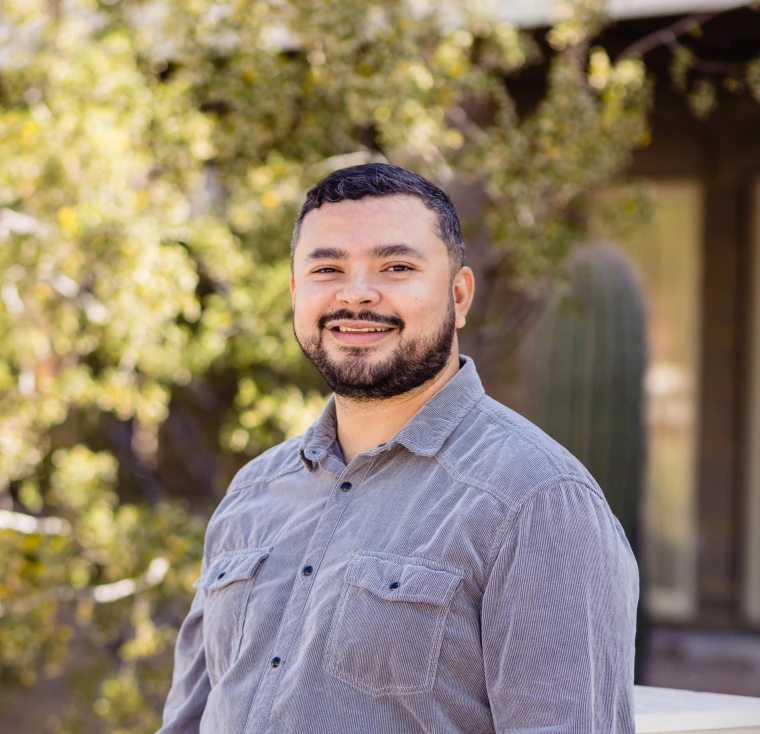"Indigenous Miskitu Teachers' Stories: A Case Study of the Intersection of Indigeneity in their Experiences as Teachers of English in the Public Education System of Honduras"
Dissertation Title: Indigenous Miskitu Teachers' Stories: A Case Study of the Intersection of Indigeneity in their Experiences as Teachers of English in the Public Education System of Honduras
Dissertation Committee: Dr. Sheilah Nicholas (Chair), Dr. Mary Carol Combs, Dr. Christine Tardy
This will be a hybrid defense; for location information, please contact Jaime at jfmejiam@arizona.edu.
Abtract: This case study informs ELT teacher education in Honduras by proposing new conceptions and understandings of language education, teacher preparation, and teacher education that encompass and is informed by language teaching from Indigenous knowledge systems. Research in teacher preparation and teacher education in Honduras has not studied these aspects. Therefore, this case study makes a significant contribution to the existing literature in the Latin American, and more specifically, the Honduran context. Moreover, previous research conducted in these areas has only privileged Western knowledge systems as it has used traditional research methods and approaches to explore these areas and topics. This case study, in contrast, is informed by Indigenous and decolonizing research methods.
As such, this study examines the aspect of Indigeneity of two Indigenous Miskitu teachers of English as former students of an ELT program in Honduras and current teachers of English in the public education system of Honduras. I define Indigeneity as the quality of being Indigenous; as embracing Indigenous worldviews, paradigms, and ways of being, doing, knowing, and thinking; as the self-identification as Indigenous; as the awareness and interest on one’s spirituality and well-being; as the use in, interest on, and passion for one’s Indigenous language and culture; as the connection to Indigenous people by blood, kinship, or ancestry (Simpson, 2011) as well as to one’s Indigenous land, place, and community (see Absolon, 2011; Sarivaara et al., 2013). The aspect of Indigeneity, which can be also correlated to one’s Indigenous identity, has not been explored in teachers of English who identify as Indigenous even though there has been an increasing interest in studying language teacher identities in recent years (Kayi-Aydar, 2019). The reality is, however, that there is a lack of research in the applied linguistics and TESOL/ELT fields that privileges Indigenous Peoples and Indigenous ways of being, knowing, and doing (Kasun & Saavedra, 2016; Pennycook & Makoni, 2020; Sayer, 2012).
Furthermore, the case study sheds light in understanding how the Indigeneity of these Indigenous Miskitu teachers of English intersected with their preparation and professionalization as English language teachers and how these intersections inform and impact their teaching praxis by having engaged in turi aisa ya, an Indigenous Miskitu methodology (Smith, 2012). Turi aisa ya is a space for sharing and the exchanging of information and experiences; it requires sitting down and listening with humbleness and intention—listening to hear. Turi aisa ya is laughing, thinking together, crying, worrying, and coming up with solutions; it is imagining, experiencing vicariously, and feeling. In a similar manner to sharing circles (Lavallée, 2009), turi aisa ya is “used to capture people’s experiences [and is] comparable to focus groups in qualitative research” (p. 28). In addition to turi aisa ya, the participants engaged in storywork as we were storying their lived experiences as a way of making and gaining insights from their stories (Archibald, 2008). Engaging in turi aisa ya and storywork created the space for dialoguing about their beliefs on education merging traditional Miskitu worldviews with English language learning, English language teaching, and their lived experiences teaching in the Honduran public education system as Indigenous Miskitu teachers of English.
Additionally, this study informs and aims to transform teacher education curriculum and policy in Honduras; namely, by proposing to the teaching university in Honduras of the critical need to 1) integrate the distinct and diverse systems of knowing, being and doing of Indigenous students in ELT programs, and (2) support and advance efficacious approaches and methods to teach Indigenous and non-Indigenous teachers of English in culturally-relevant and culturally-responsive methods that are respectful of the Peoples, histories, and realities of Honduras. Implications on how this work could inform the teaching of English as a global language and inform research practices in the applied linguistics and TESOL/ELT fields are also discussed.


